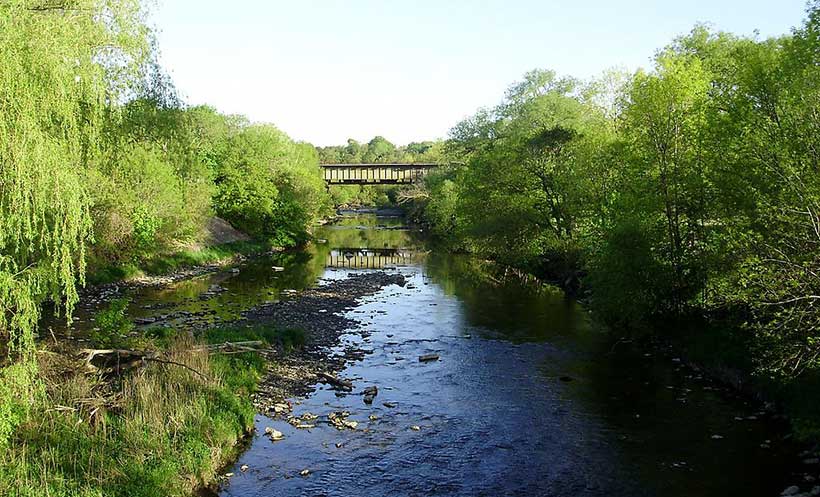With more and more environmental concerns surrounding our lakes, rivers and streams, it’s understandable to question whether the tap water you drink is safe.
But here in Etobicoke, health concerns about our drinking water are something you don’t have to worry about. Because of the number of regulations our city has in place, you can rest easy knowing that Etobicoke’s drinking water is safe.
Etobicoke’s Drinking Water
Etobicoke’s drinking water comes directly from Lake Ontario. In fact, we have a water treatment plant in South Etobicoke called the R.L. Clark Water Treatment Plant. It opened in 1968 and accounts for 30% of Toronto’s drinking water.
Our federal, provincial and municipal governments work together to ensure our drinking water is safe and that regulations are met. Standards include minimum and maximum concentrations of contaminants, which fluctuate depending on the intended use of the water.
In the GTA area, our drinking water is tested every six hours, which is over 6,000 times each year. Each municipality must publish water test results and make them readily available to the public. You can contact your local water utilities company to be provided with information regarding your water’s contaminants, or view annual reports on the Toronto.ca website.
In addition, you could always carry out a self-test kit, which contains test strips to test for bacteria, lead, pesticides, nitrites/nitrates, chlorine, hardness and pH. An alternative test is to take a water sample from your tap to your local water lab to receive an indication of its quality.
Licensed Laboratories for Testing Drinking Water in Etobicoke
| Laboratory Name | Shipping Address | Contact Information |
|---|---|---|
| Ministry of the Environment and Climate Change | 125 Resources Road,Etobicoke, ONM9P 3V6 | Janet Mills Tel: 416-235-5831 Janet.mills@ontario.ca |
| Ministry of Labour Radiation Protection Monitoring Service | 81A Resources Road, Etobicoke, ONM9P 3T1 |
Caroline Lobo Tel: 416-235-5967 Fax: 416-235-5926 Caroline.lobo@ontario.ca |
Lead Pipes and Drinking Water
Etobicoke residents who suspect that they have lead pipes and live in homes built before the 1960s can submit a tap water sample to the city for free testing.
First you need to pre-register for a lead testing kit. And then it’s simply a matter of picking up a kit at a Toronto Public Health location, collecting a sample, and dropping off the kit. Results are delivered by phone or email within 30 days of submitting a sample.
In Etobicoke, our nearest Public Health Location is at the Etobicoke Civic Centre at the West Mall and Burnhamthorpe Road.
Water Filters Provide Extra Precautions
Although the water treatment process in the Toronto area is extensive, leaching from pipes is possible after treatment – especially if pipes are old or corroded.
Due to this, by-products including elevated levels of lead, microplastics and chlorine, could end up in your water. That’s why installing a water filter is always a good idea for ensuring your tap water remains safe. Besides filtering contaminants including lead, water filters can remove the taste and smell of chlorine.
Depending on what you require removed from your water, there are many different kinds of filter technologies available:
Activated Carbon: As today’s most effective filter material available, activated carbon uses granular activated carbon or carbon blocks to remove over 70 common contaminants without removing healthy minerals.
Reverse Osmosis: Although this system removes contaminants that activated carbon does not, it also removes all healthy minerals. It’s normally combined with activated carbon or other filters including IX.
Ion Exchange (IX): IX filters remove certain substances depending on their ionic charges. Desirable minerals are left in the water while hardness and scale issues are improved.
Distillation: A filter which includes heating, boiling and condensing water to remove impurities.
Ultraviolet Light Filters (UV): Although they effectively remove 99.9% of waterborne organisms, UV water filters need to be combined with another filter to remove other containments.
Can You Drink Tap Water in Toronto?
In Toronto, a quality activated carbon filter is normally more than enough to make your tap water extra-safe. But to keep it working properly, you must regularly change the filter. Otherwise, bacteria can grow, the filter can become clogged, and eventually, it will become ineffective.
We’ll let you know which filter is best for your home and can even install it for you! Ask us about the options when it comes to water filters and the installation process involved.
